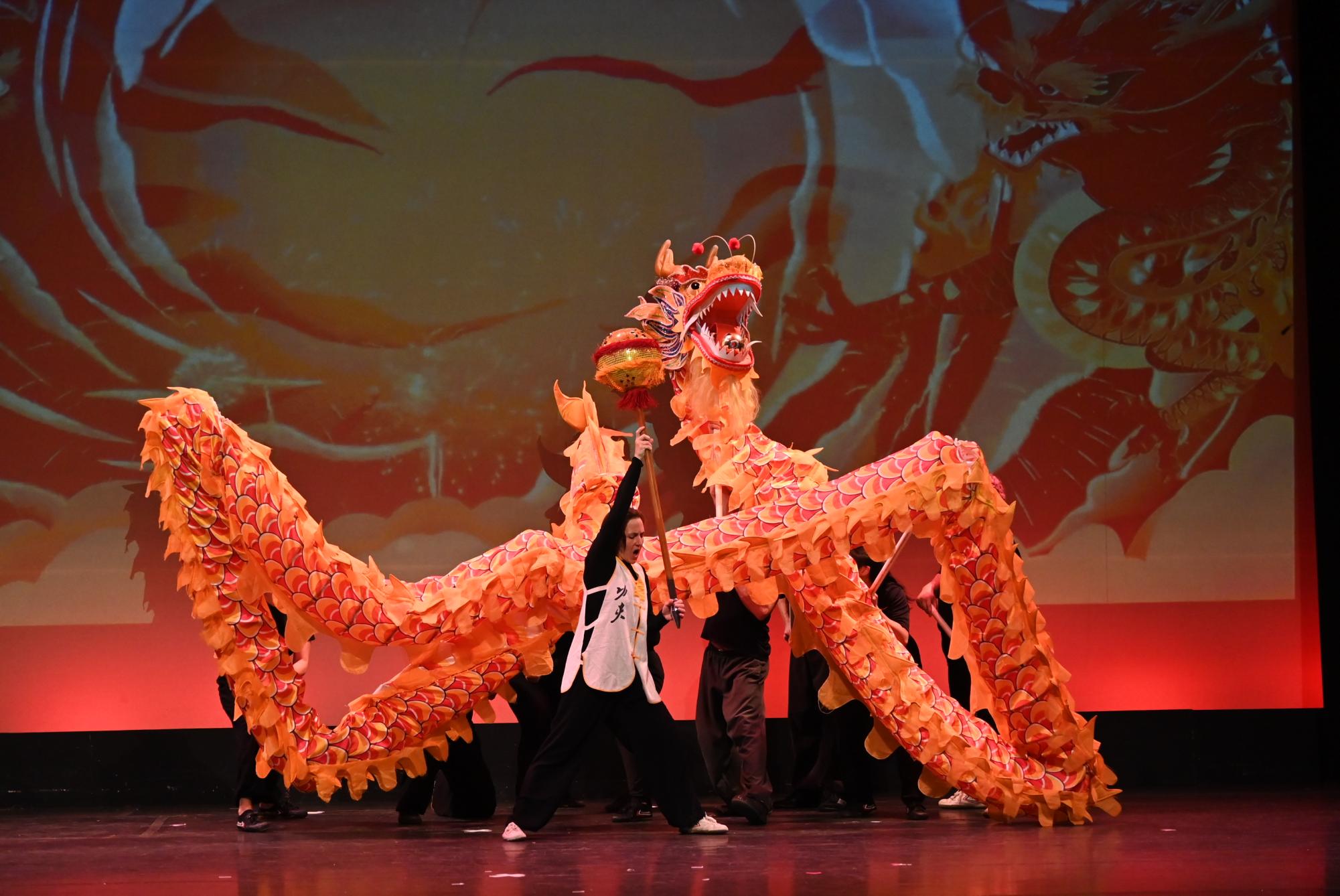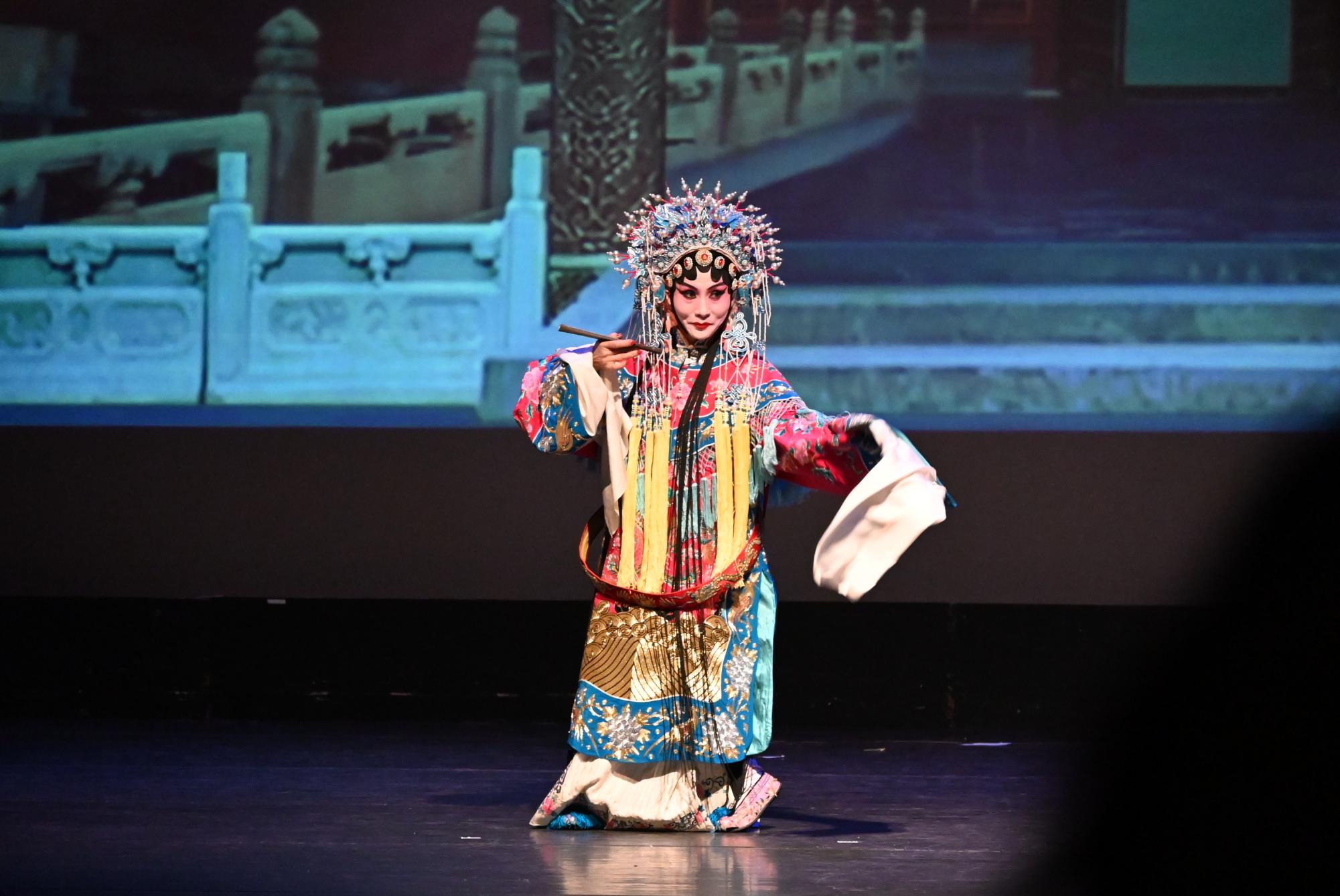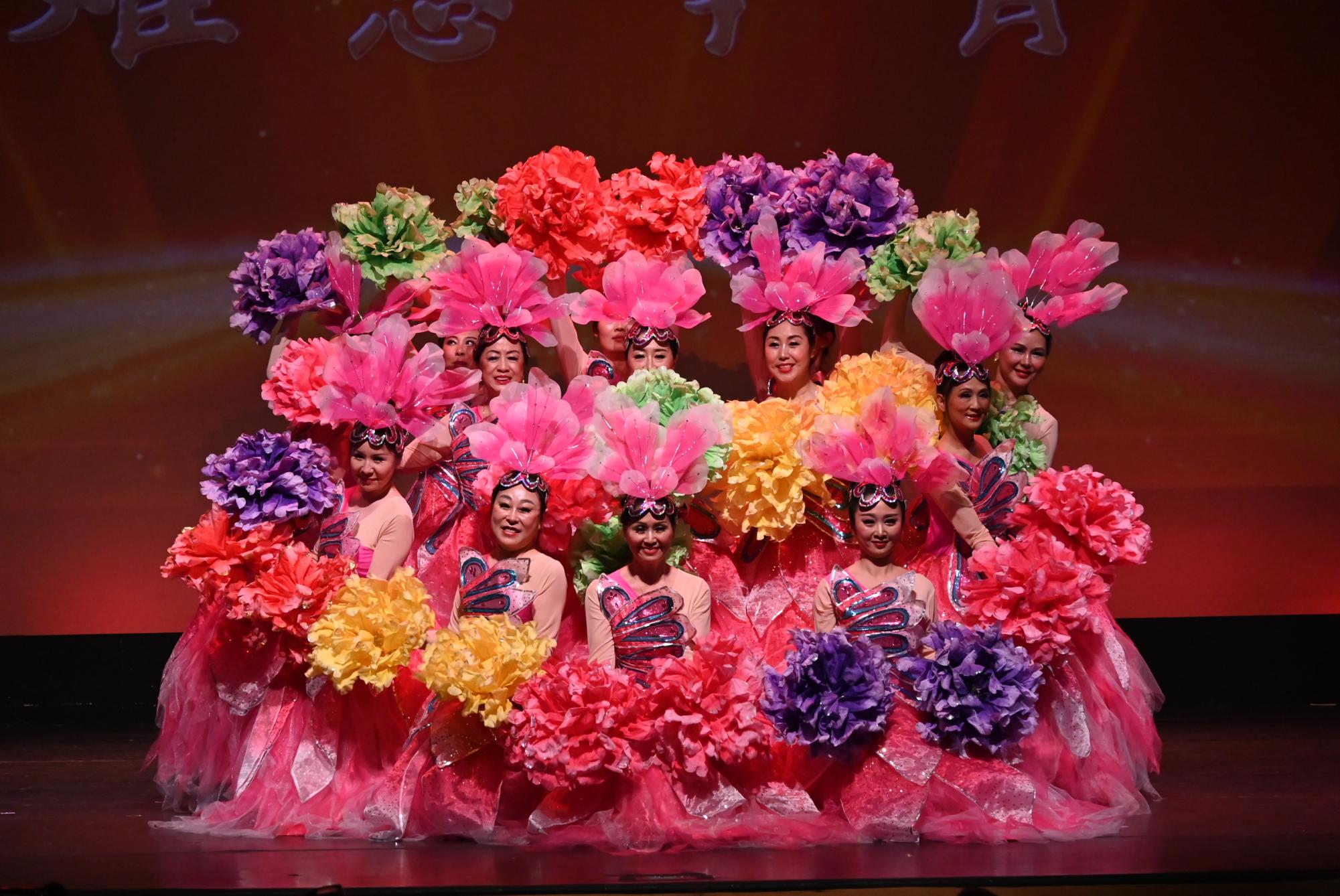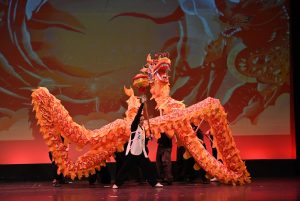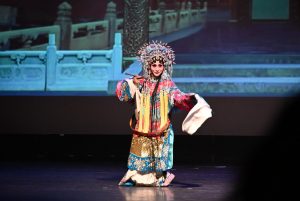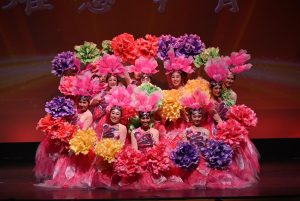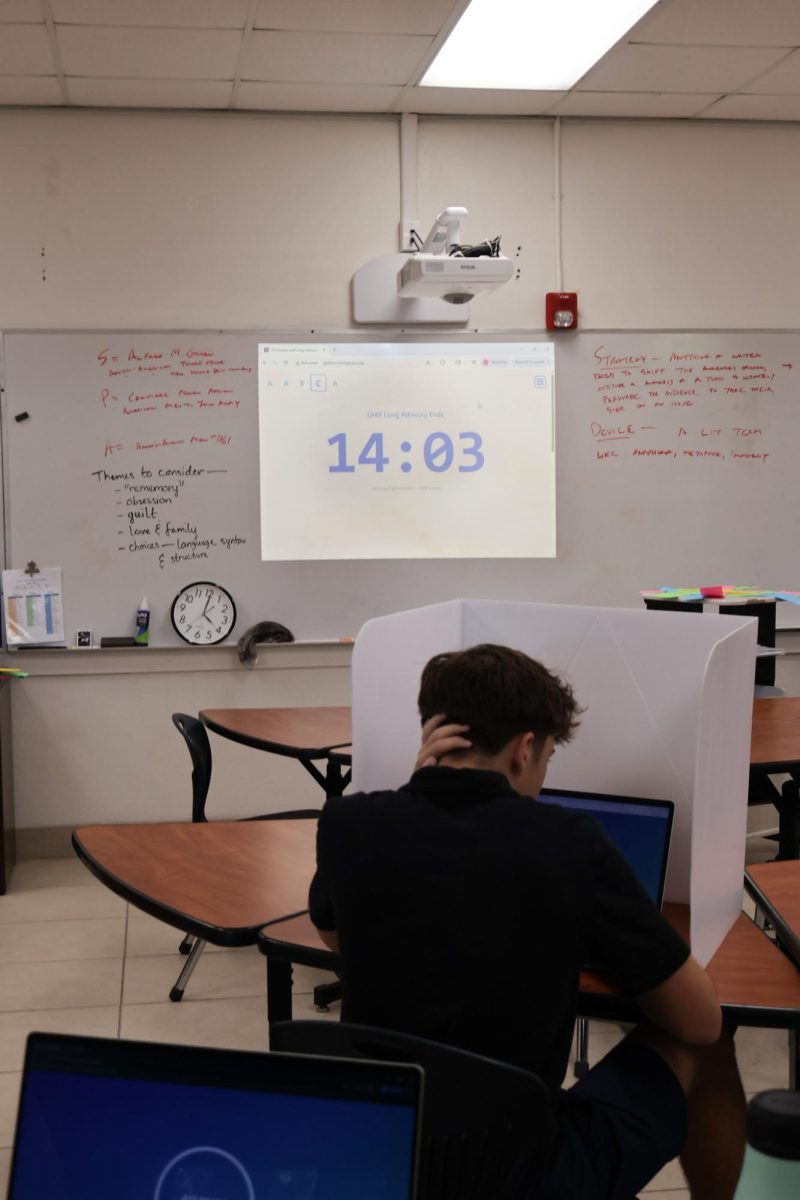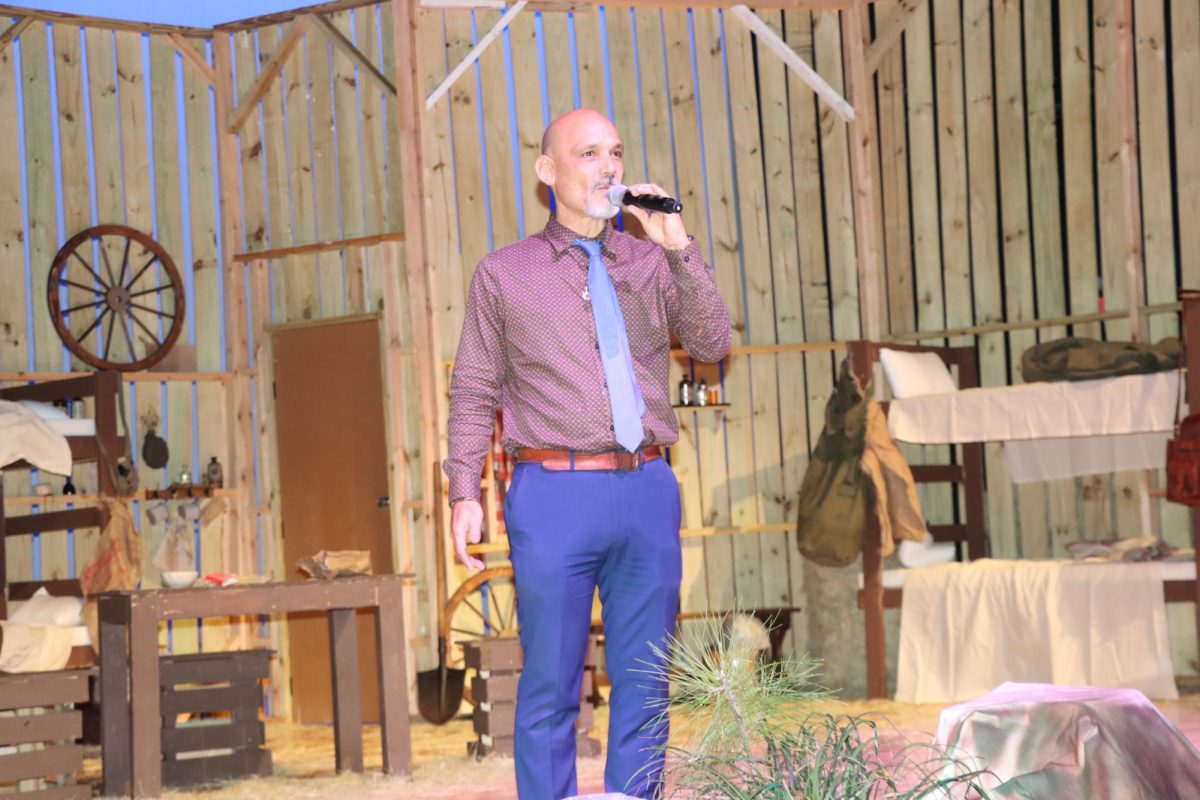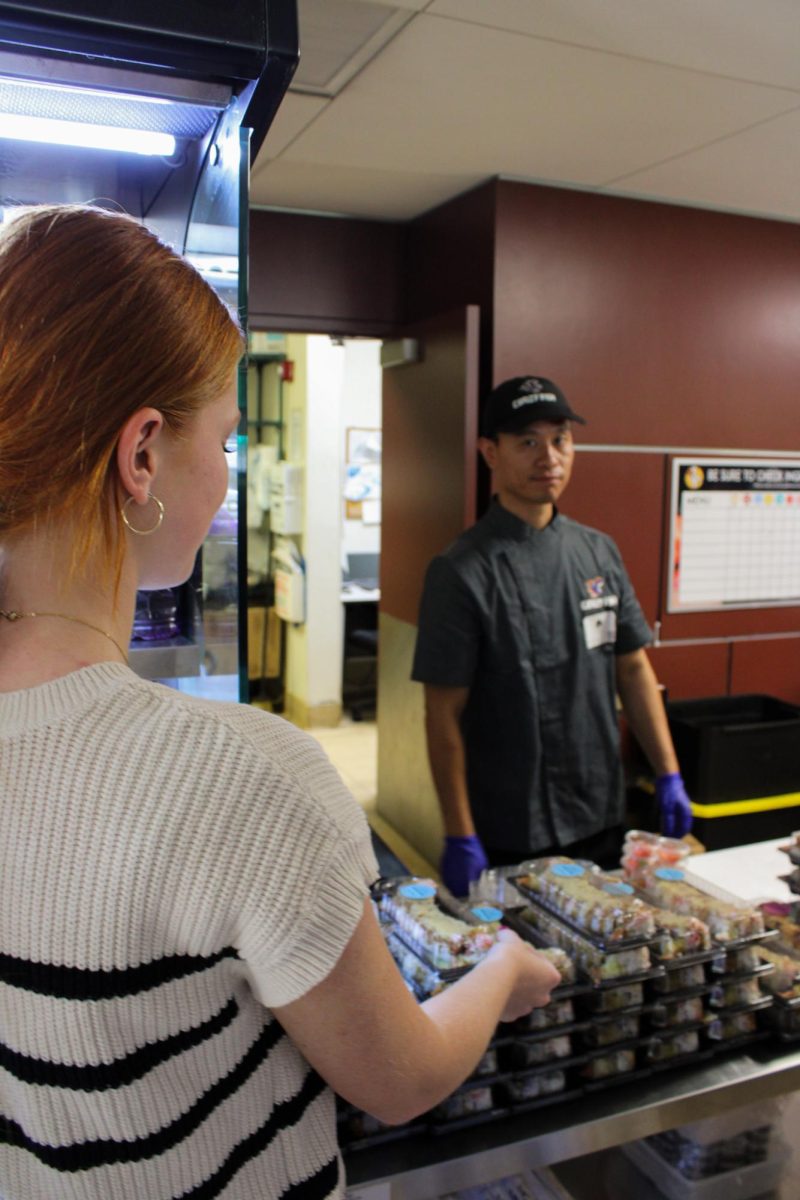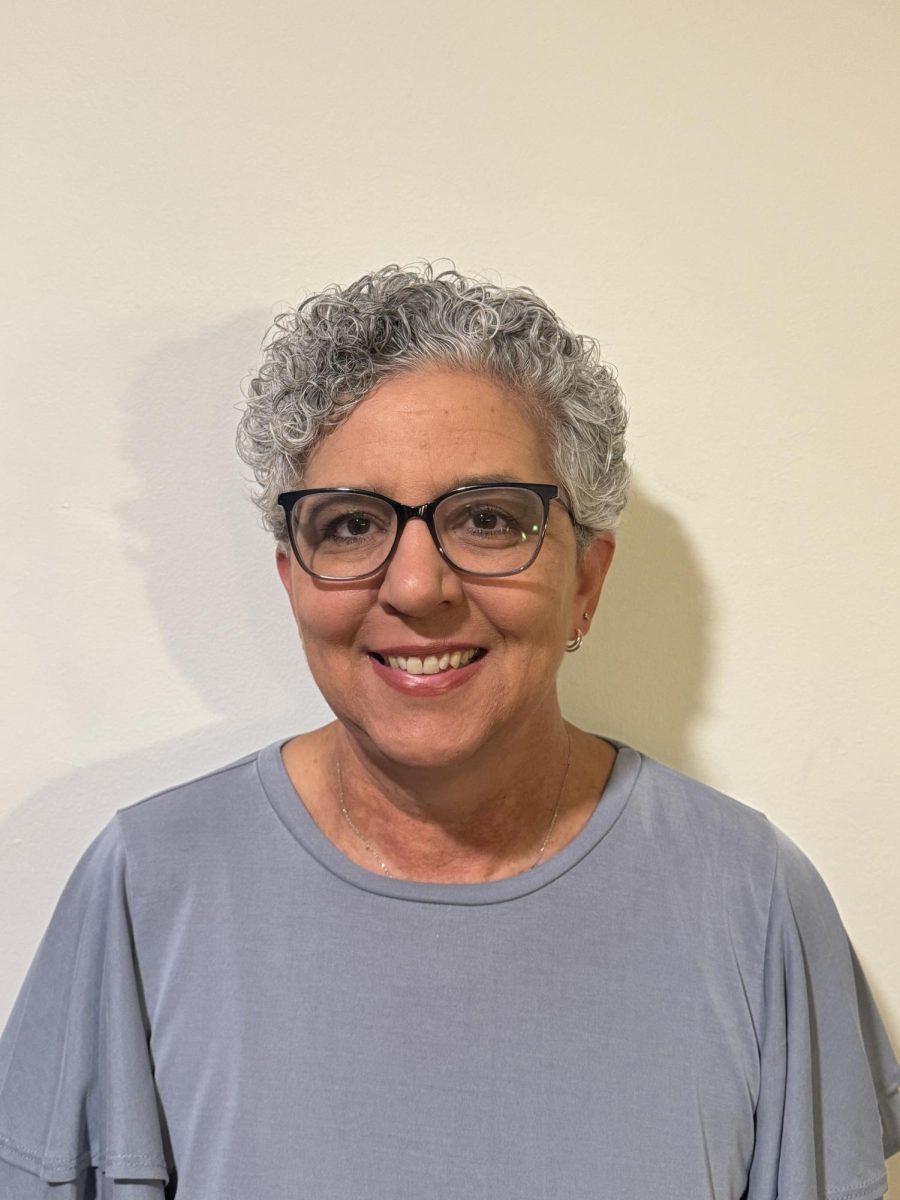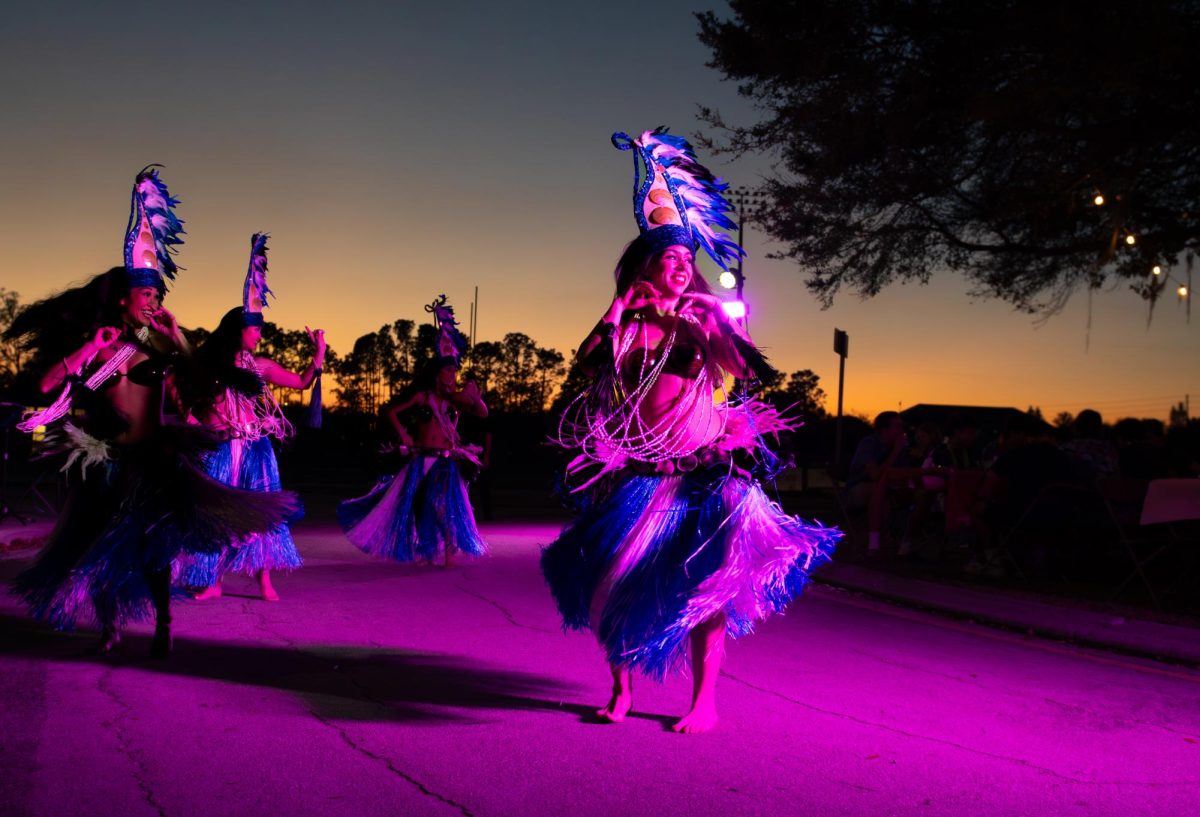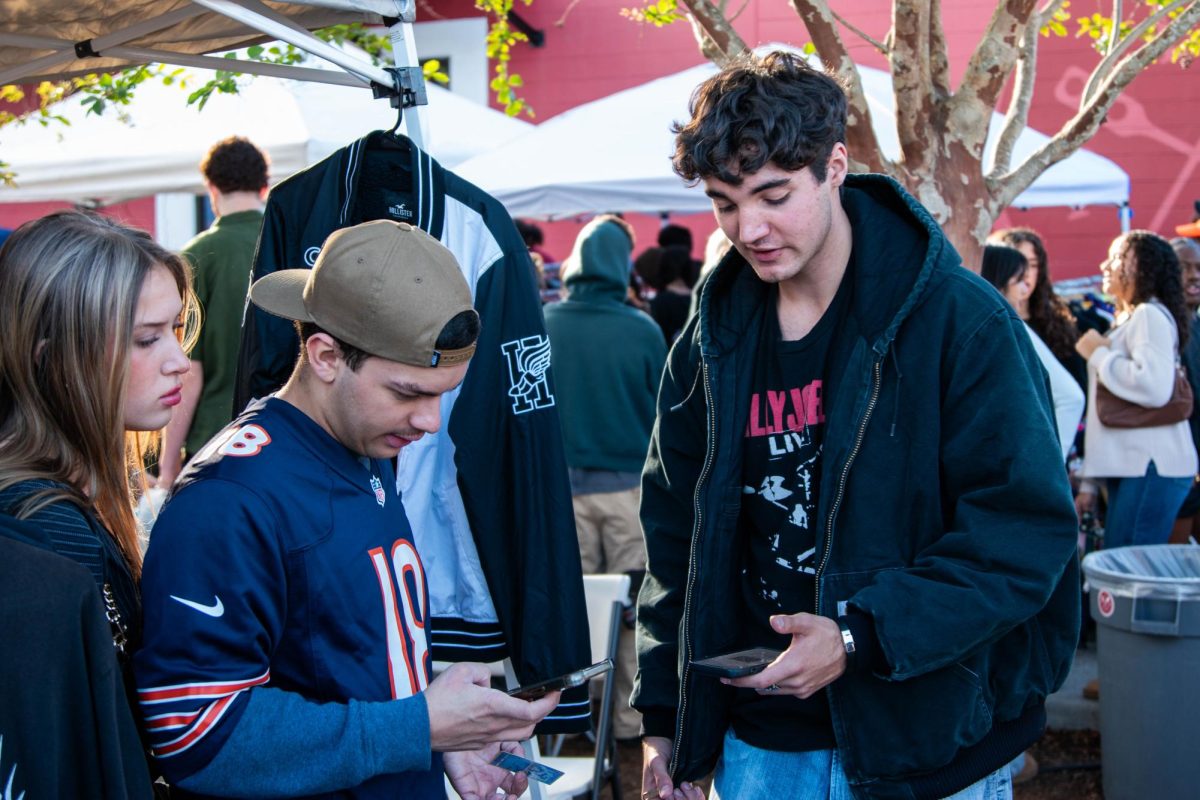For the past three years, in late February, hallways and classrooms are adorned with red paper lanterns, dragon banners, and paper-cut Chinese characters. These decorations are put up by Chinese teacher Lin Huang and the students of her Chinese classes for 春节 (chūnjié), more commonly known as Chinese New Year or the Spring Festival. Huang is just one of the many individuals and organizations in Central Florida working to make the traditional festival more accessible than ever.
There are a variety of traditions associated with Chinese New Year. Huang’s decorations provide a glimpse into what a typical Chinese family would do prior to the lunar new year.
“[Chinese families] put up couplets, 对联 (duìlián), up on the door, hang up the Chinese paper lanterns, 灯笼(dēnglóng), and kids will get red envelopes called 红包 (hóngbāo),” Huang said. “The families will [eat] dumplings, 饺子, especially in the North [of China].”
Chinese New Year for senior Lucas Qu and his family usually involves the gathering of relatives and preparation of food.
“During Chinese New Year, we cooked up more dishes than normal,” Qu said. “We had 包子(bāozi), dumplings, all of that. We had my grandma over, and celebrated [the festival].”
His favorite tradition is the dragon dance, or 舞龙 (Wǔ lóng), that involves an elaborate and flexible dragon structure puppeted by dancers via long wooden poles along the length of the dragon. During Culture Fest on February 22, the booth for China did bring a dragon puppet so students could participate in a dragon dance.
Not all of these practices can be easily transferred to a classroom setting. Still, Huang has found aspects to incorporate.
“Chinese 1 [class] watches some videos [about Chinese New Year], eats some traditional Chinese snacks, and everybody gets 红包 (hóngbāo) from Chinese 1 to 3,” Huang said. “Chinese 2 students assemble paper lanterns…in Chinese 3, you make [paper] firecrackers and another class hangs them up.”
Chinese students also received a discount on tickets to the Orlando Chinese Association (OCA) 2024 Chinese New Year Gala, hosted by Trinity on January 20. Huang believes it is essential for foreign language students to attend cultural celebrations.
“You cannot just learn a language without learning the country’s culture,” Huang said. “It’s very important. The culture will help with learning the language.”
Performances of the gala included Chinese New Year staples such as a lion dance, Peking opera, and acrobatic jar balancing. Normally, these performances would not be as accessible to non-Chinese individuals, but the OCA strives to educate other communities about Chinese communities and their culture.
“[The OCA] is a nonprofit organization [and] mainly exists to promote Chinese culture,” Executive Vice President of the OCA Wei Xue said. “Especially to the American people.”
According to Xue, public celebrations of cultural events such as Chinese New Year allowed her American husband to explore his preexisting interest in Chinese traditions. For Chinese Americans born in the United States or unable to visit China regularly, these events become an accessible way to reconnect with their heritage.
“I’m a first-generation immigrant,” Xue said. “But my children don’t know…anything we learned [while growing up in China]. I want them to learn and not forget their culture or native language.”
This year was the 3rd year the gala was held at Trinity. Huang hopes that the event will continue to expand to include more performances, just as she plans on expanding the Chinese program to include more advanced courses.
“We plan to [continue the gala in future years],” Huang said. “Maybe next year we’ll have a parade.”
The 2024 Chinese New Year Gala is a prime opportunity for Chinese-American students and families to reconnect with their heritage, while also motivating anyone with an interest in China to learn more by attending.
“Even if you aren’t Chinese, find some friends [or] family who are willing to introduce you or invite you to a performance or a dinner and take [the offer] up,” Qu said. “It’s very cool, and I hope more people get involved and learn about [Chinese culture].”
Updated on March 13.




